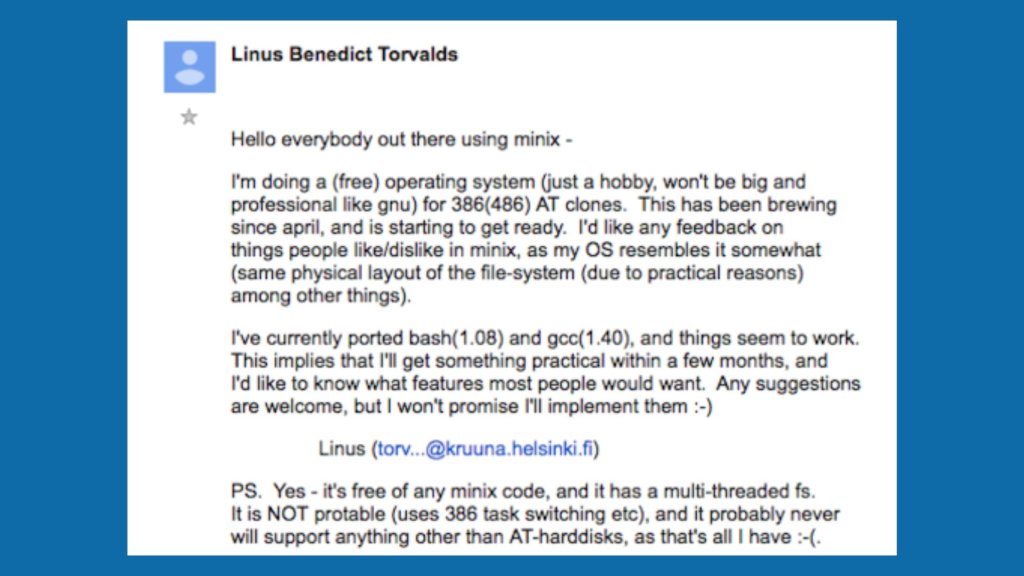
30 years ago today, Linus Torvalds sent out an email announcing a new “hobby” project, a free operating system. This project is what turned into Linux, which today has the largest installed base of all general purpose operating systems (largely due to Android being based on the Linux kernel).

Interestingly, while Linux started as designed for personal computers, it turned out to be dominant not there but in the server, cloud computer, and super computing space. According to W3Techs, over 40% of websites are powered by Linux as of August 2021, outpacing Windows. 90% of public cloud computer services run on Linux as of 2017, according to the Linux Foundation. And Linux completely dominates the market for supercomputers – the TOP500 project tracks the 500 most powerful computers in the world, and since 2017, 100% operate on Linux.
Oh and also, NASA brought Linux to Mars to power the Perseverance rover.

Linux seems to be doing quite well everywhere, except in desktop computing, the place where it started. The global desktop computing market is dominated by Windows (77%) and MacOS (17%), according to StatCounter’s 2020 data. This is in part driven by network effects in software development, and in particular gaming, where Windows is estimated to hold a 97% share. And the network effects create an entry barrier; games are developed for Windows, because that is where all the users are, and gamers use Windows, because that is where all the games are. This dynamic makes is hard for a new operating system to break in.
The Linux struggle in the desktop market, despite success in other areas, I think fuel the perennial joke that “THIS could be the year of the Linux desktop.” But jokes aside, there does seem to be scope for Linux to make some inroads into the desktop market. For one, Valve’s recently announced handheld gaming console SteamDeck will run Linux, giving Value a huge incentive to maintain Linux compatibility for as many games as possible, and to work with gaming developers to make sure titles will run smoothly on Linux. Thus, the SteamDeck does seem to have the potential to break the network effect entry barrier in the gaming market. And at the same time, there are so many great Linux distributions being developed that aim to be user friendly alternatives to MacOS and Windows, with elementaryOS, Zorin OS, Linux Mint, Pop! OS, Ubuntu, KDE Plasma, and Manjaro to name only a very few of the options. There really does seem to be something for everyone in Linux.
So who knows, maybe indeed this could actually be the year of desktop Linux?